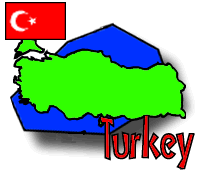Word of the Day: Ucoz
Person of the Day:
Place of the Day: Asclepion at Bergama
Tech Fact of the Day:
Group Dispatch, February 21-23


Questions? Ask Corinne ![]() or andrEa
or andrEa ![]() !
!
Return to Fast Facts
 |
 |
 |
 |
 |
|
Itinerary/ Journal |
Discussions |
About Turkey |
eDscape Projects |
Scrapbook |
|
|
|
|
|
|
Internet access while in Turkey was provided by Raksnet. |
Copyright 1997-99 BikeAbout. All rights reserved.

